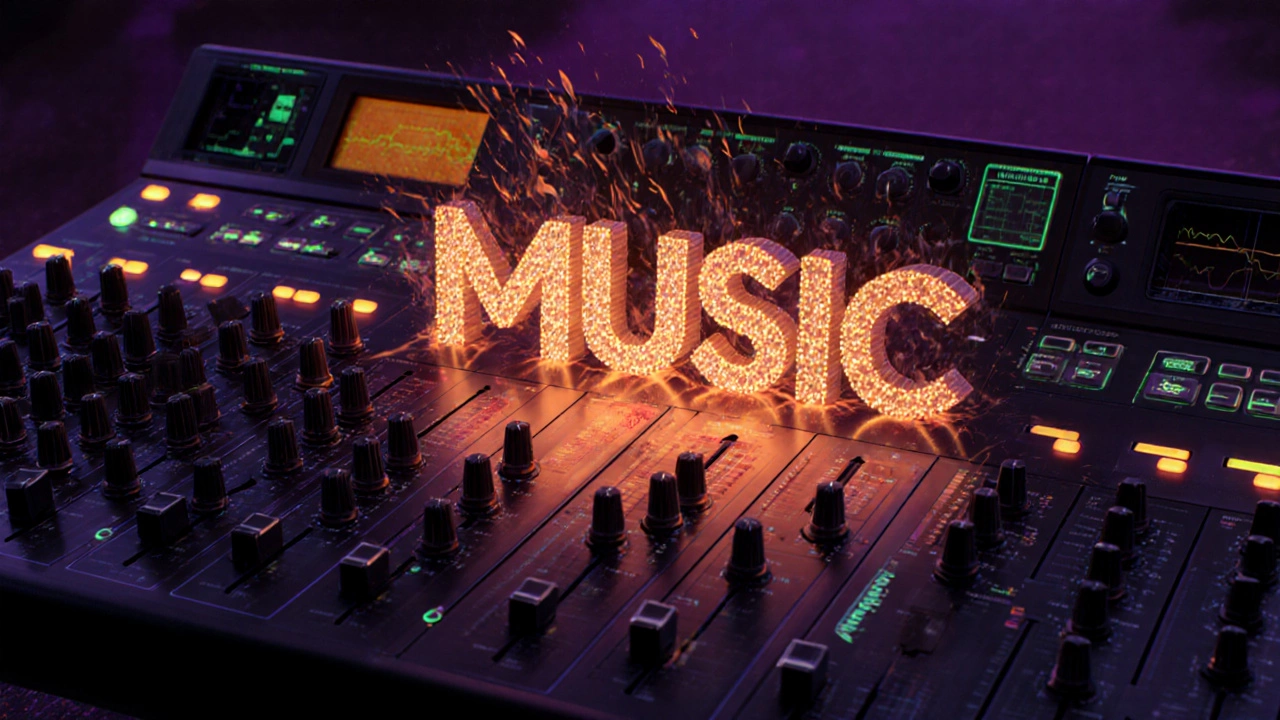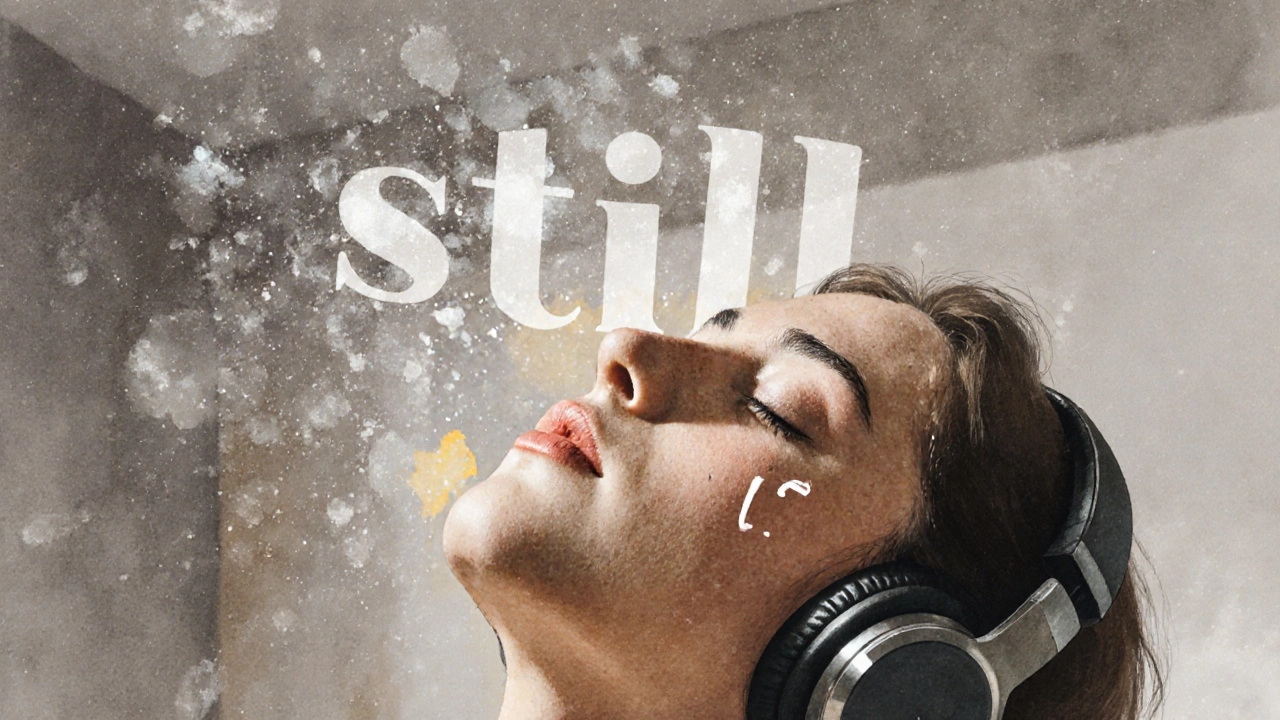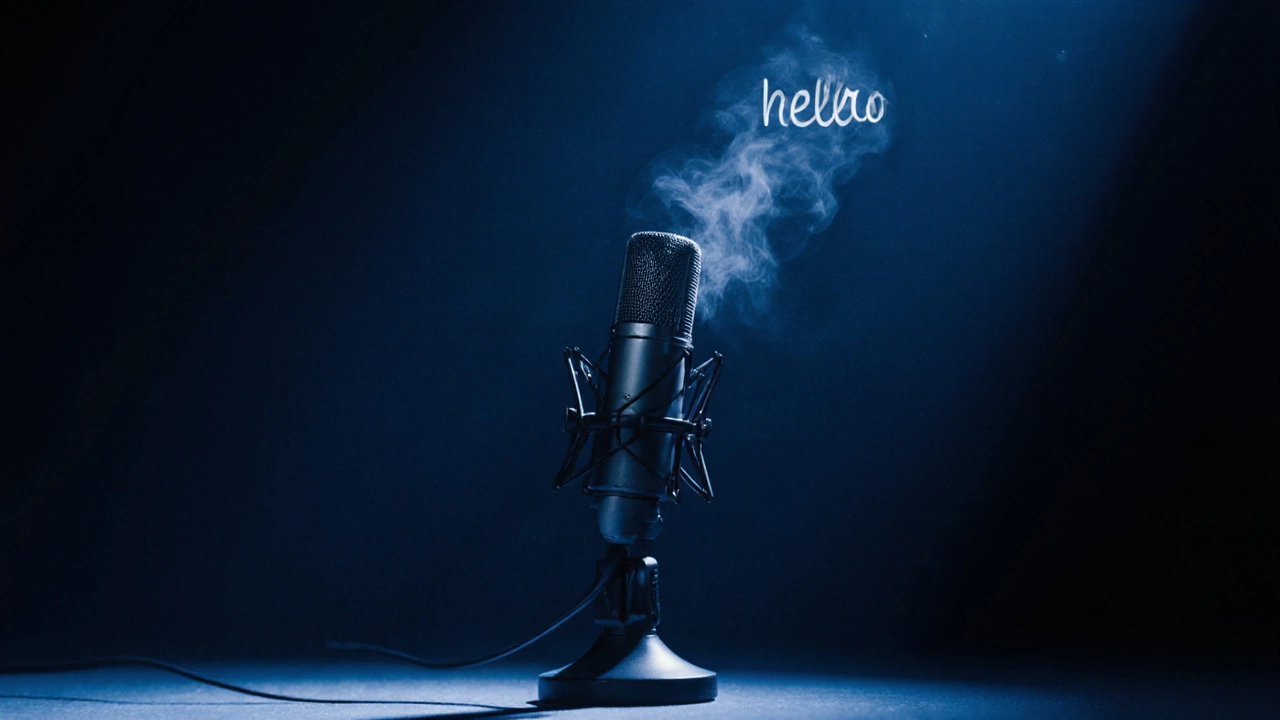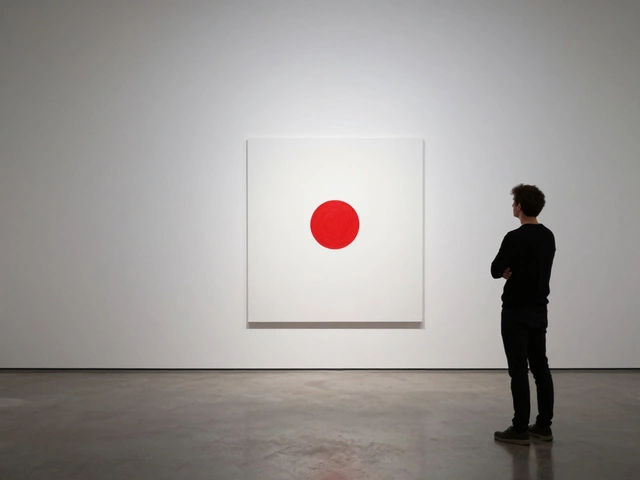Loud Word Calculator: Find Your Song's Emotional Anchor
Enter Your Lyrics
Select Emotional Context
Production Techniques
Recommended emotional anchor:
Why this word works:
Recommended techniques to emphasize:
When you hear a song and one word hits you like a punch - maybe it’s love, or broken, or now - you’re not imagining it. That word isn’t just louder. It’s engineered to matter. In music, the loudest word isn’t always the one with the highest volume. It’s the one that carries the most emotional weight, the one the artist and producer pushed to the front of your brain. And that’s not random. It’s science, craft, and intention all rolled into a single syllable.
It’s Not About Volume - It’s About Focus
Many people think "loud" means turning up the gain or cranking the bass. But in music, loudness is about attention. Think of your favorite chorus. The word that sticks isn’t necessarily the loudest note - it’s the one that stands out because everything else drops away. That’s called vocal emphasis. Producers use a mix of techniques to make one word feel louder than the rest: compression, reverb, panning, timing, and even silence.Take Adele’s "Hello". The word "hello" is repeated, but the first time she sings it, the backing track cuts out completely. Her voice is softer than a whisper, yet it feels deafening. That’s because your brain locks onto the contrast. The silence around the word makes it louder than any scream ever could.
Same goes for Eminem’s "Lose Yourself". The line "You better lose yourself in the music, the moment" - the word "music" hits hard not because it’s screamed, but because it’s the first time the beat drops back in after a tense pause. The word lands like a drum hit. It’s not louder. It’s more important.
How Producers Make Words Pop
Music producers don’t guess which word should stand out. They use tools to sculpt it. Here’s how:- Compression: Reduces the dynamic range so quieter parts get louder. But they’ll apply it selectively - only to the word they want to punch through.
- Sidechain ducking: The beat dips slightly every time the key word hits, making it feel more present.
- Mid-range boost: Human speech sits between 1kHz and 4kHz. Boosting that range makes lyrics cut through guitars and synths.
- Timing: A word sung on the beat feels stronger than one sung off-beat. Producers align critical words with the kick or snare.
- Reverb tail: A short, tight reverb on a key word makes it feel closer, louder, more intimate.
These aren’t magic tricks. They’re the same tools used in film to make a whisper feel terrifying. In music, they turn a lyric into a moment.
The Psychology of a Loud Word
Why does one word stick when a whole verse doesn’t? It’s tied to how your brain processes emotion. Research from the University of Jyväskylä found that listeners remember words that are emotionally charged - especially if they’re delivered with vocal tension, breathiness, or a slight crack. These aren’t flaws. They’re signals.When a singer pushes their voice - even just a little - your mirror neurons fire. You feel what they’re feeling. That’s why the word "sorry" in Taylor Swift’s "All Too Well" hits harder than any other word in the song. It’s not louder. It’s raw. It’s the moment the emotion peaks.
Words like "free", "home", "never", "again" - they’re simple. But when they land right, they carry the weight of an entire story. That’s why songwriters spend weeks tweaking single lines. They’re not writing poetry. They’re building emotional traps.

Common Words That Become Loud in Music
Some words show up over and over in hit songs because they’re emotionally charged by default:- Love - The most common word in pop lyrics. It’s loud because it’s universal.
- Now - Urgency. It’s the word that snaps you back to the present.
- Break - Pain. Loss. Change. It’s a trigger word.
- Still - Resilience. It implies endurance against odds.
- Yes - Power. Acceptance. Rebellion.
These words don’t need to be screamed. They just need to be placed right. In Billie Eilish’s "Happier Than Ever", the word "still" is whispered, barely audible. But it’s the loudest moment in the song - because it’s the moment she gives up pretending.
What Happens When the Wrong Word Is Loud?
Not every loud word works. Sometimes, producers overdo it. You hear a song where the word "the" or "and" is pushed too hard - and it feels weird. That’s because it breaks the emotional flow.Imagine a ballad where the producer boosts the word "of" in "heart of gold". It sounds silly. It’s not emotional. It’s mechanical. Listeners tune out. That’s why the best songs feel effortless. The loud word doesn’t scream - it whispers, then lingers.
Bad production makes the wrong word loud. Great production makes the right word unforgettable.

How to Find the Loud Word in Any Song
Next time you listen to a song you love, try this:- Turn off the visuals. Just close your eyes.
- Listen for the word that makes you pause - even for half a second.
- Ask: Did the music change right before it? Did the beat drop? Was there silence?
- Now replay that part. Notice how the voice changes - breath, tone, timing.
You’ll start to hear patterns. In hip-hop, it’s often the punchline. In rock, it’s the bridge. In R&B, it’s the ad-lib right before the final chorus. The loud word is the emotional anchor. Everything else holds it up.
Why This Matters for Songwriters
If you write lyrics, don’t just focus on rhymes. Focus on impact. Which word in your chorus could carry the whole song? Is it the one you feel in your chest when you sing it? That’s the one.Test it. Record yourself singing the line with the word emphasized - then with it buried. Play it back. Which one gives you chills? That’s your loud word.
Don’t try to make every line hit hard. One powerful word is worth a hundred clever ones.
Final Thought: The Loudest Word Is the One You Remember
Music doesn’t need to be loud to move you. But it needs to have one moment - one word - that sticks. That’s the difference between a song you hear and a song that stays with you. The loudest word isn’t the one with the most decibels. It’s the one that echoes in your silence after the music ends.Is the loudest word in music always the one with the highest volume?
No. The loudest word is the one that grabs your attention emotionally, not the one that’s played the loudest. Silence, timing, and vocal texture often make a word feel louder than any boost in volume.
Can a word be loud even if it’s whispered?
Yes. In fact, whispered words can feel louder because they create contrast. When everything else drops out - like in Adele’s "Hello" - a whisper becomes the most powerful sound in the room.
What makes a word emotionally charged in music?
Words tied to universal feelings - love, loss, freedom, regret - carry more weight. But it’s also about delivery: breathiness, cracks, pauses, and timing. A word like "still" or "never" becomes powerful when it’s sung with vulnerability.
Do producers choose the loud word, or does it happen naturally?
It’s both. Songwriters often write with a key emotional word in mind. Producers then use mixing tools to enhance it. But sometimes, the loudest word emerges in the studio - when the singer delivers a take that just feels right.
Why do some songs have a word that sticks with you for days?
Because that word was placed at the emotional peak of the song. It’s not just the lyrics - it’s the music, the silence, the voice, and the timing working together. That word becomes a memory trigger. Your brain remembers it because it felt something real.



